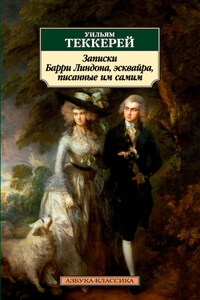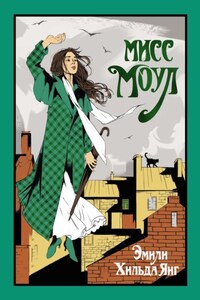It was a May morning in Glenville. Pretty, picturesque Glenville, low lying by the lake shore, with the waters of the lake surging to meet it, or coyly receding from it, on the one side, and the green-clad hills rising gradually and gently on the other, ending in a belt of trees at the very horizon's edge.
There is little movement in the quiet streets of the town at half-past eight o'clock in the morning, save for the youngsters who, walking, running, leaping, sauntering or waiting idly, one for another, are, or should be, on their way to the school-house which stands upon the very southernmost outskirts of the town, and a little way up the hilly slope, at a reasonably safe remove from the willow-fringed lake shore.
The Glenville school-house was one of the earliest public buildings erected in the village, and it had been "located" in what was confidently expected to be the centre of the place. But the new and late-coming impetus, which had changed the hamlet of half a hundred dwellings to one of twenty times that number, and made of it a quiet and not too fashionable little summer resort, had carried the business of the place northward, and its residences still farther north, thus leaving this seat of learning aloof from, and quite above the newer town, in isolated and lofty dignity, surrounded by trees; in the outskirts, in fact, of a second belt of wood, which girdled the lake shore, even as the further and loftier fringe of timber outlined the hilltops at the edge of the eastern horizon and far away.
"Les call 'er the 'cademy?" suggested Elias Robbins, one of the builders of the school-house, and an early settler of Glenville. "What's to hinder?"
"Nothin'," declared John Rote, the village oracle. "'Twill sound first-rate."
They were standing outside the building, just completed and resplendent in two coats of yellow paint, and they were just from the labour of putting in, "hangin'" the new bell.
All of masculine Glenville was present, and the other sex was not without representation.
"Suits me down ter the ground!" commented a third citizen; and no doubt it would have suited the majority, but when Parson Ryder was consulted, he smiled genially and shook his head.
"It won't do, I'm afraid, Elias," he said. "We're only a village as yet, you see, and we can't even dub it the High School, except from a geographical point of view. However, we are bound to grow, and our titles will come with the growth."
The growth, after a time, began; but it was only a summer growth; and the school-house was still a village school-house with its master and one under, or primary, teacher; and to-day there was a frisking group of the smaller youngsters rushing about the school-yard, while the first bell rang out, and half a dozen of the older pupils clustered about the girlish under-teacher full of questions and wonder; for Johnny Robbins, whose turn it was to ring the bell this week, after watching the clock, and the path up the hill, alternately, until the time for the first bell had come, and was actually twenty seconds past, had reluctantly but firmly seized the rope and began to pull.
"'Taint no use, Miss Grant; I'll have to do it. He told me not to wait for nothin', never, when 'twas half-past eight, and so" – cling, clang, cling – "I'm bound" – cling – "ter do it!" Clang. "You see" – cling – "even if he aint here – " Clang, clang, clang.
The boy pulled lustily at the rope for about half as long as usual, and then he stopped.
"You don't s'pose that clock c'ud be wrong, do yo', Miss Grant? Mr. Brierly's never been later'n quarter past before."
Miss Grant turned her wistful and somewhat anxious eyes toward the eastern horizon, and rested a hand upon the shoulder of a tall girl at her side.
"He may be ill, Johnny," she said, reluctantly, "or his watch may be wrong. He's sure to come in time for morning song service. Come, Meta, let us go in and look at those fractions."
Five – ten – fifteen minutes passed and the two heads bent still over book and slate. Twenty minutes, and Johnny's head appeared at the door, half a dozen others behind it.
"Has he come, Johnny?"
"No'm; sha'n't I go an' see – "
But Miss Grant arose, stopping him with a gesture. "He would laugh at us, Johnny." Then, with another look at the anxious faces, "wait until nine o'clock, at least."
Johnny and his followers went sullenly back to the porch, and Meta's lip began to quiver.
"Somethin's happened to him, Miss Grant," she whimpered; "I know somethin' has happened!"
"Nonsense," said Miss Grant. But she went to the window and called to a little girl at play upon the green.
"Nellie Fry! Come here, dear."
Nellie Fry, an a, b, c student, came running in, her yellow locks flying straight out behind her.
"What is it, Miss Grant?"
"Nellie, did you see Mr. Brierly at breakfast?"
"Yes'm!"
"And – quite well?"
"Why – I guess so. He talked just like he does always, and asked the blessin'. He – he ate a lot, too – for him. I 'member ma speakin' of it."
"You remember, Nellie."











